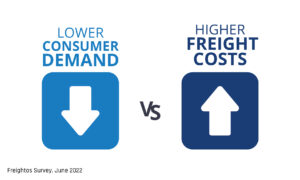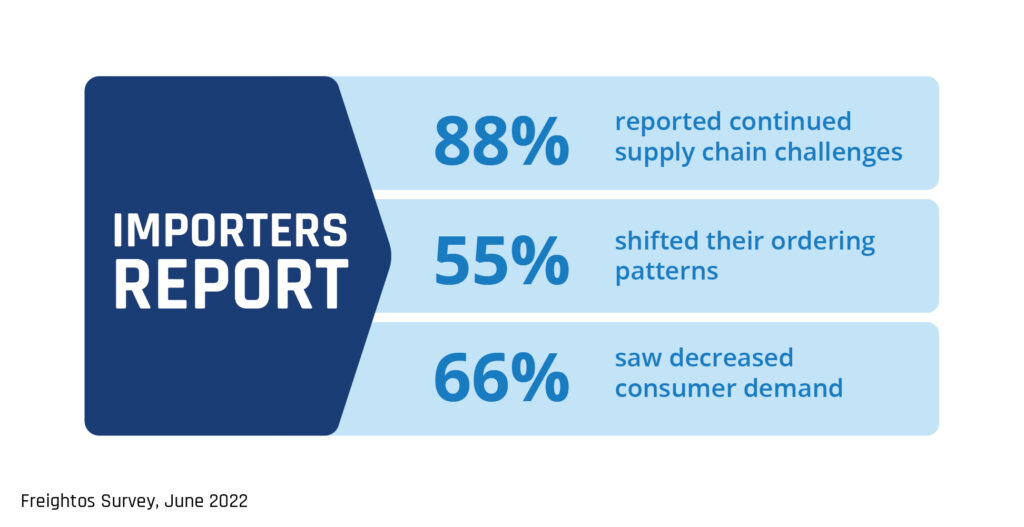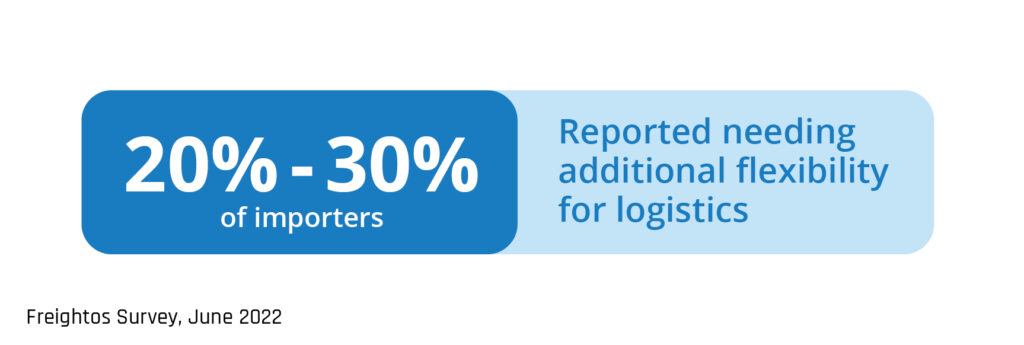Market conditions suggest possible demand reduction for logistics
The pandemic-driven surge in consumer spending on goods led to an unprecedented demand for logistics. However, a domino effect of three core factors may see this demand drop:
- supply chain disruption
- a shift in importer/exporter behavior
- and a reduction in consumer demand for goods
Key insights from the latest Freightos survey of importers and exporters shows the impact of these factors for logistics providers.
Supply chain disruptions persist
In just over 18 months, the supply chain crisis reached its peak and it won’t end overnight.
88% of businesses surveyed reported experiencing continued supply chain challenges, the latest of which has been Shanghai’s lockdown. Demand for air cargo out of Shanghai has plummeted since April with manufacturing shut down and scarce trucking capacity.
This unfortunate cocktail of events resulted in congestion, delays, and elevated supply chain costs.
Surplus inventory means less need for logistics
Target’s recent inventory overshoot reflects a trend among retailers to keep shelves stocked despite supply chain difficulties. Like Target, many retailers may start to lose the gamble on accruing surplus inventory and may therefore think twice before rushing to stockpile goods. Instead, businesses will seek other ways to minimize supply chain uncertainty.
Most respondents (55%) placed peak season orders early to stockpile inventory and avoid delays. This shift in ordering patterns is coinciding with a downward
At the forefront of logistics
The combined impact of higher costs and falling consumer demand has propelled many shippers to respond. Between 20-30% of survey respondents reported needing additional flexibility for logistics, including:
- Switching between ocean to air cargo
- Moving from FCL to LCL shipping
- Booking containers directly with ocean carriers
Embracing this need for flexibility, shippers are comparing and testing multiple transportation modes, routes, and strategies to avoid supply chain delays and lower costs.
Freight forwarders looking for an edge are turning to platforms like WebCargo to access direct digital connection to 45+ carriers for dynamic pricing, real-time capacity, and booking. This provides forwarders with sorely needed increased flexibility for their customers.

